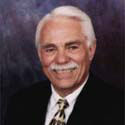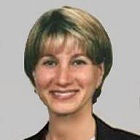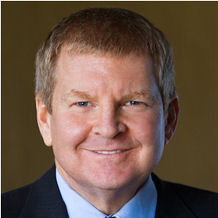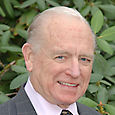Category: Pricing & Valuation
Pricing & Valuation
Below is a conversation between Tom West and a business broker asking for clarification regarding Seller's Discretionary Earnings.
There has always been some confusion regarding SDE. It was originally termed Seller’s Discretionary Cash (SDC), and I think it was called something else before that; then it became Seller’s Discretionary Earnings (SDE). I guess someone decided Earnings sounded better than Cash. In any event, as mentioned in the following emails, it boils down to profit + addbacks (this is the discretionary part) and owner’s salary or compensation. Then the multiple is calculated and is used against the SDE calculation. The result plus or minus the inventory, depending on who you talk to, is the price.
As old-time successful veteran business brokers will say, however, the price is what the seller will take for it!
Read the rest of entry »
What is a FSBO? A business for sale by owner.
Why is it a mistake for an owner to try and sell their own business?
1. Don’t know value
What the owner paid for it, what other businesses are advertised for, and what outdated rules-of-thumb (ROT!) are supposed to apply may have no relationship to today’s value. Price it too high and...
Read the rest of entry »
Note from Tom West:
Clyth lives and has his office in New Zealand, and some of the language, etc. may be different. But, if you read the following, you will see that business brokerage is not much different here in the states. (I like the term MPSP – it sounds much better than an appraisal.)
If you are thinking of selling your business you will want to know the Most Probable Selling Price (MPSP) before placing it on the market.
What you paid for it, what you need for it and what similar businesses are advertised for, may all have little relationship to current market value.
Read the rest of entry »
Personal goodwill is present to a greater or lesser extent, in most SME – but is less common in larger companies.
An Australian case stated “a business proprietor who has ‘know how’ and ability, and the personality to attract and hold customers, no doubt may be said to possess those customers’ goodwill. This will certainly be of value to him, and just as certainly will increase his profits, but it does not thereby become for the purpose of commercial law, ‘goodwill’. It is not a saleable asset. This is the test.”
With intangibles becoming an increasingly large proportion of business value the appraiser needs to carefully differentiate between enterprise / practice goodwill and personal goodwill.
For example,...
Read the rest of entry »
We realize that the following is a bit self-serving since we do sell and promote ValuTrax, but we also feel it is an important and informative article on the process.
The ValuTrax Small Business Pricing Model is an accurate, easy-to-use online application available online through Business Brokerage Press. ValuTrax provides a Broker’s Price Opinion. It does not provide a formal valuation.
The ValuTrax pricing model is based on traditional business brokerage pricing methods that are easy-to-use, easy for clients to understand, and which can generate supplemental income for brokers and other business consultants. ValuTrax Pricing Reports sell for $500 to $1,500 and up with additional information included. The ValuTrax application consists of 12 basic steps, with the ValuTrax Pricing Report being generated in Step 12 in either PDF or editable MS Word format. Brokers and other business consultants can use the editable Word format to add other sections to the ValuTrax report such as a description of the subject business, an industry profile, competitive analysis, for sale comps, etc. Business Appraisers can also use the editable MS Word format, and a built-in editable Calculation of Value template, to prepare Calculation of Value reports for small businesses.
In Step 1 of the ValuTrax application,
Read the rest of entry »
In preparing for a talk in Florida next month, I found a very interesting statistic. I have kept some data from my days at United Business Investments (UBI). As a few of you know, UBI was the first business brokerage firm to have some 50 company-owned offices in eight states. I had someone who kept pretty accurate statistics of the offices’ performance: number of listings, number of deals, sales, etc.
One of the more interesting statistics was the actual selling price versus the seller’s asking price. In 1978, it was...
Read the rest of entry »
The Direct Market Data Method (DMDM) relies on the principle of substitution. A buyer will not pay more than the price at which he can obtain an equally desirable substitute.
The DMDM method uses parameters of comparison in the form of income multipliers. They can be multipliers of income, either gross net or discretionary cash flow. The three most popular databases which supply the transactional data are; Institute of Business Appraisers (IBA), BizComps and Pratts Stats.
When attempting to value a company using the Direct Market Data Method (DMDM), it is not uncommon to experience...
Read the rest of entry »
I began my business brokerage career in 1963 in Anaheim, CA. The average sales price of a business in that year was approximately $15,000. That doesn’t sound like a lot, but using an inflation table, that would be approximately $105,000 in 2010 dollars. Our minimum fee was $1,000 – today (also in 2010 dollars) it would be a $7,000 minimum. However, shortly after I joined the firm, it was raised to $1,500, and it is now 2012. What is your minimum fee today?
According to the BizBuySell data
Read the rest of entry »
A recent survey by BizBuySell, using their data, makes for not only interesting reading, but is very informative. BizBuySell is providing a valuable service to the business brokerage industry by promulgating this data.
For example, one interesting figure is significant because it bears out a figure from other sources. The chart in the BizBuySell report on small business sales price versus asking price came out at approximately ...
Read the rest of entry »
The terms used to express earnings are as follows, along with a definition of SDE:
EBDIT (EBITDA)—Earnings before depreciation (and other noncash charges), interest, and taxes.
EBDT—Earnings before depreciation (and other noncash charges), and taxes.
EBIT—Earnings before interest and taxes.
Source: Pratt et al., Valuing a Business
Read the rest of entry »
We receive quite a few inquiries on the Seller’s Discretionary Earnings (SDE) method of pricing a business. For those who want an official definition, following is one from the International Business Brokers Association and a further explanation from Business Reference Guide.
The SDE method of pricing a business actually
Read the rest of entry »
Comments from Tom West:
Cleaning out some old files revealed a very practical approach to pricing main street businesses. The creator of the following was Bill Womack, an old-time business broker and I should add - a very successful one. This take on pricing small businesses is about as practical and down-to-earth as it can get.
Read the rest of entry »
Comment from Tom West:
Following is an advertising piece used by travel expert Bob Sweeney president of Innovative Travel Acquisitions, in Atlanta, Georgia. It is valuable information on the very practical side of business valuation and deal making in general. Too many business brokers forget why the seller hired them in the first place – to sell their business. Business brokers are duty-bound to try to get the seller – theirs client – the highest price possible. Thanks to Bob for allowing us to use this piece.
Read the rest of entry »
The data below is from the 2012 Business Reference Guide (coming January 2012). Sandwich shops represent a big opportunity for the business broker. If you want to start your business off on the right foot in January, send a letter, postcard, or newsletter to all of the sandwich shops in your area. You should be able to compile a list for mailing, phone calls and perhaps even personal visits. You should be planning this for all of the business types that are perfect for the first time buyer, etc.
Sandwich Shops
SIC 5812-19 . NAICS 722211 . Number of Businesses/Units 37,000
Rules of Thumb
Read the rest of entry »
A business valuation is not about what a company is worth in the current owner's hands, it's about the company's transferable value. It's about the probability that the business will sustain its profitability and continue to grow with a new owner at the helm. Therefore, the factors that contribute to the company's stability and consistency will be examined by prospective buyers to determine the risks associated with taking over the business.
A strong brand, an intangible asset and an element of goodwill, is a desirable attribute to have in the business-for-sale marketplace. Having documented systems, also, is a factor that contributes to saleability. Both make the list of...
Read the rest of entry »
The 2012 guide will be at sent off to print today. We are offering free shipping and pre-publication pricing through December 30th PLUS a free industry survey for guide orders placed by December 15th. Find more info at http://bbpinc.com/education/books/pre-publicationspecial.aspx. The guides will ship out in early January.
We say "no" to many potential listings. This month starts my 50th year selling businesses. We have sold around 7,000 businesses in that time, earned "enough" money, and, more importantly, made a lot of friends and built strong relationships with many professional advisors.
Fundamental to our growth has been our commitment to truth and honesty in all our dealings with clients and customers and our belief in the "golden rule" – do unto others as you would have them do unto you.
One aspect of this is providing...
Read the rest of entry »
Read your article on the BBP blog…very interesting and applicable. I’d say a majority of the businesses I visit in this area fit into the category of ‘too much asset’ for cash flow…generally that asset causing the problem is real estate included in the sale. It seems to me this causes the same problem as ‘fancy’ equipment, etc. Am I wrong? You mention “unless the seller is willing to do something very, very special (which I’ll explain some other time)”…I’d appreciate your elaborating on that a bit.
Regards
Montana Broker
BILL'S RESPONSE
Thanks for the kind comments.
The banks I deal with call these business elements “underperforming assets”. That’s any asset that isn’t producing enough profit to make the deal viable.
For example:
If an owner has a business that is generating EBITDA + owner benefits (what I call NOB…Net Owner Benefits) of, say, $200,000, and, if that owner also owns a building that might appraise at $1,000,000, I would do the following evaluation:
Read the rest of entry »
|
Bagels
|
30% to 35% of annual sales
|
|
Bars
|
50% of annual sales
|
|
Bar & Grills
|
(50% liquor) 40% to 50% of annual sales
|
|
Barbecue
|
30% of annual sales
|
|
Bistros
|
30% of annual sales
|
|
Brew Pubs
|
40% of annual sales
|
|
Billiard Parlors
|
45% of annual sales
|
Source: Business Brokerage Press and the Boston Restaurant Group, October 2011
Read the rest of entry »
How Much Is My Business Worth?
By Bob Sweeney
The fact is that your business is worth whatever the most motivated buyer is willing to pay you at the time you are ready to sell. That’s where our matchmaking skills & database that has been developed over 20 years becomes very valuable. There is no set formula that all buyers adhere to. Never pay thousands of dollars for an appraisal unless you need it for legal purposes – divorce, estate matters, partnership dispute, etc. For a mere $200, our firm provides an opinion of value for those who are curious to know what their business is worth or are contemplating a sale. Buyers pay zero credence to the results of a full blown appraisal.
Read the rest of entry »
We have listed franchises with a “quick” rule of thumb, or range, usually expressed as a percentage of sales. For many of them we have based it on quite a few actual sales; others may have been based on just a few; and in some cases just one where we felt it was appropriate. They can be a good starting point for pricing the business.
Many of the franchises are well known while others are very new with just several units. By the time this goes to press, some of the franchises may have folded, sold or merged. We try to keep this as up-to-date as possible. We could use your help. To contribute to our ever-growing list, just go to our Web site and click on Franchise Update and complete the form that will show up and email to us at tom@bbpinc.com and also if you find that a franchise has disappeared or merged, etc, please let us know. Obviously the big changes such as Mail Boxes to UPS Store will be caught by us or by our researchers (hopefully).
Keep in mind that rules of thumb are just that. Every business is different and rules of thumb will never take the place of a business valuation or even an opinion of value. But, they will give you a quick ballpark idea of what the business might sell for everything else being equal. A rule of thumb will tell you whether a seller is in the ballpark when he or she tells you what they think their business is worth or what they want to sell it for.
Read the rest of entry »
This posting is a continuation from Part 1 and Part 2 of Asking for Guidance.
(8) We use a different formula for commercial service businesses (like executive suites) than for retail businesses, or restaurants, or manufacturing.
You will note that the formula I’m recommending does not take into consideration the value of the FF&E. Yes, I understand how hard it is to tell a seller who has an “under performing asset’ (FF&E that’s ultra nice, but that isn’t producing enough profit; or too much slow moving inventory; or who owns a building that’s “too nice” for the profits being generated), that his business is only worth a multiple of the cash flow. I, like all brokers, have had to explain this to many, many sellers over the years. But, I’ve never been clever enough, for example, to sell a machine shop, that, say, has $1,000,000 in FF&E, but that only has an EBITDA discretionary cash flow of, say, $100,000…and then price it for the $1,000,000 the seller thinks he should recapture in a sale…unless the seller is willing to do something very, very special (which I’ll explain some other time). Similarly, when you encounter a greeting card shop that only has an EBITDA cash flow of $50,000 for an owner operator, but that has over $300,000 in inventory (at cost), you can’t sell it for $300,000 or more, and the buyer can’t finance it, unless the seller does something very, very special. The “something special” is NOT simply owner financing. The answer to selling businesses that have too much of the “wrong” asset, for a price the seller can accept, that is ok with the buyer and his banker, is...
Read the rest of entry »
This posting is a continuation from yesterday. Click here to see the question and first third of Bill's response.
(6) All our “formula’s” start, as almost all brokers do, with an analysis of the historic cash flow, and an EBITDA recasting.
But, we never do a projection. That’s one of the “conservative” elements that are rare in business brokerage. All our analysis are based on history, not forecasts. That, alone, causes the recasting to be more conservative (and more sell-able, and more finance-able) than the recasting done by brokers and other experts who base their pricing opinions on future growth of the business. Why do we not use projections? Because you can’t prove that opinion. And, today’s more sophisticated, and more informed, buyers (and their bankers) usually look on projections as “the oldest, and least honest, broker trick in the book”. But, we can prove the historical cash flow. We rarely get any arguments about those conclusions.
Another reason for our avoiding forecasting, especially in tough times, is that buyers and bankers simply are ultra uncomfortable with the risks associated with over-relying on growth we can’t prove. In 2011, especially with the negative forecasting that now burdens most of the national economic news, buyers and bankers are even less willing to “buy into” growth, than in past years. But, they will “buy into” the idea that...
Read the rest of entry »
THE INITIAL QUESTION:
Dear Bill:
I hate to take up your time, but I have a matter you may be able to help me with. I got your name from the BBP publication. What I’m looking for is an indication of a pricing mechanism(s) for an “Executive Office Suites” business, which a friend of mine established in Massachusetts and has owned and operated for 25 years. My research on pricing and/or sales has proven very unproductive.
He improved the raw space, has 65 offices for rent in an excellent location on a major thoroughfare in a large office complex, provides the usual secretarial, phone, etc. support, but rents the 17,000 square feet from the landlord. He is 95% occupied.
Do you have any ideas about to put a proper value on this business?
Read the rest of entry »
When selling a business, maximizing value is of primary importance to the business owner. One element that can drag down business value is poor inventory management in the form of excess inventory. Maintaining proper inventory levels is essential to maximizing value.
When running a business, the goal should be to tie up as little cash as possible in inventory, while having enough inventory to meet ordinary business needs. After all, a prospective buyer looking at your business as a possible acquisition would rather have fully flexible cash not less flexible inventory weighing profits down. Any additional dollar that can be found to help bottom line earnings when selling a business will be rewarded by a higher price when the business is sold.
Read the rest of entry »
Following is a draft of the information we are gathering for the 2012 Business Reference Guide. Sandwich shops are good sellers for business brokers. Buyers like them because they are easy to operate, the hours are better than most quick service food operations; the prices are reasonable, and they are generally located in a shopping center and have a limited menu. Listing sandwich shops can be very profitable. Here is some information that might be helpful. Although the information is based on franchised operations, it can be relevant to non-franchised shops also.
Read the rest of entry »
Note from Tom:
I have written about pizza shops and how saleable they are. I mentioned that I can count six within a six mile area of my home – and we live 30 miles + from Boston. I recently found some interesting figures from the recent PMQ survey. The question was: How many pizza shops are there within a 10 miles radius of your shop?
| Less than 5 |
30% |
| 5 to 9 |
36% |
| 10 to 15 |
13% |
| More than 15 |
20% |
Indeed there a lot of pizza shops. In addition, I can’t remember ever seeing a closed one. That doesn’t mean that some owners haven’t put the key in the door, but I doubt that many have for lack of business. The good ones are very saleable. Following is some information that is current and we will be adding to it later in the year.
Read the rest of entry »
Comment from the BBP Staff
A Note on Engagement Letters – With the large increase in business brokers providing business valuation services, making sure that the client knows exactly what he or she is getting is critical. There have already been some issues with business owners thinking they are getting a business valuation that can be used in legal situations, to address IRS problems, etc. Most business brokers really only supply “opinions of value” which serve most purposes, but obviously not all. Using an Engagement Letter which outlines exactly what the client is receiving can protect the business broker or appraiser from any misunderstandings or worse yet, any legal problems.
We realize that the following article concerns a program we are marketing – ValuTrax, but it should be of interest to anyone providing valuation services. Keep in mind that even if you are just providing a business owner with an informal “written” appraisal or opinion of value or pricing report – you should still get something in writing and signed that tells a potential seller that it is just your opinion of what you think it should sell for. Regardless of what you may tell potential clients, if they have a written report on the value of their business, they could end up using it for purposes other than what you intended.
Read the rest of entry »
Yes, financial information is important. But often non-financial information is more important in determining the value of a business. Many of the real value drivers do not appear on the Financial Statement, so it is critically important to fully understand the company’s operation.
People
How reliant is the business upon the owner’s skills, experience, and relationships? Are these transferable or does the goodwill walk out the door with the owner? And are there key staff who it would be difficult to replace, or whose loss would damage sales and profits?
Products and Services
How vulnerable are these to economic changes or legislative changes? Are they exclusive or is there strong competition out there? Are there any supply contacts or customer contracts in place to ensure profitability going forward?
Premises and Facilities
Is there a sound lease in place if the business premises are leased? If so...
Read the rest of entry »
There are many factors that affect a company's value. In recent articles we discussed the quality of the financial statements, historical performance, management, and appearance. The following discussion highlights some other factors that often impact value.
In the process of determining the value of a company, analysis of the financial statements is crucial but in many cases, the nonfinancial information is more important than the financials. If you do not understand the company's operations, ownership structure, products and services, markets and marketing, and employees it is very difficult to determine the company's financial health or its future.
Ownership Form
The form of ownership is an important component of the valuation process for several reasons; such as comparability to other businesses when using the market approach or in comparison to industry composite data. Another reason to understand the ownership structure is legal rights and/or restrictions applicable to the interest being valued. For example,...
Read the rest of entry »
It seems like every time we visit our son Ron in Wilmington, NC, there is a new franchised sandwich shop that has opened in the area. In gathering data for our 2012 Business Reference Guide (it is hard to believe that this will be the 22nd edition), we began playing with some of the figures. Following is an update on some of the shops. The listing of the various franchises has the rule of thumb for pricing them along with the average annual sales figures that we have so far. The rest of the data is just our rough calculations.
Read the rest of entry »
My staff and I have worked hard to reach the high levels of competency we have achieved. Between educational and vocational awards, designations and battlefield tested skills we have the scars and medals shared by many of our contemporaries in this occupation we share. Whether it’s practicing as brokers on main street, intermediaries in M&A, valuations for divorce, shareholder actions, estate matters, potential sale, etc., buy-side engagements or arranging financing so that our clients maximize their life dream, we all strive for excellency.
So why do so many in our industry perform for free, sans fee?
We charge potential clients an upfront fee for a strategic options valuation before being engaged to represent the sale of the company. We ask buyers to pay a retainer if they want us to represent them in a business search. We charge a fee to aid a buyer in securing financing and credit back to the buyer if we’re paid an origination fee by the lender.
Sure, it’s argued that we should work on a success fee basis like real estate brokers. They do a comparative market analysis for free and then hope they will get the listing and eventually get the property sold. Many business brokers/intermediaries do an evaluation for free with the hopes of getting the listing. Even if all we had to do was pull BizComps and Pratt’s Stats and present same in a 2-page report, chances are we’d still have 2 to 4 hours of work invested. I’m constantly amazed when I hear of a contemporary in another office working for free. Even if you do not have valuation credentials, are you not more qualified than most to offer an expert opinion of value?
Read the rest of entry »
compiled by Tom West
View Franchise Rules of Thumb for franchises from Red Robin to Zoo Health Club.
View the complete Franchise Rules of Thumb list from A to Z on our web site.
More detailed franchise information can be found in our annual Business Reference Guide or on our continually updated online version of the guide -- BRG Online.
Read the rest of entry »
compiled by Tom West
View Franchise Rules of Thumb for franchises from La Estancia to Quizno's Classic Subs.
Tomorrow's posting will complete the list of Franchise Rules of Thumb.
Read the rest of entry »
compiled by Tom West
View Franchise Rules of Thumb for franchises from Dairy Queen to Kuman Math & Reading Centers.
More detailed franchise information can be found in our annual Business Reference Guide or on our continually updated online version of the guide -- BRG Online.
Read the rest of entry »
compiled by Tom West
View Franchise Rules of Thumb for franchises from AAMCO Transmission to Curves for Women.
Have you had a franchise resale within the past 12 months? You can share information about your franchise resale by completing the form at http://bbpinc.com/franchise-resale-form.aspx.
Read the rest of entry »
compiled by Tom West
Throughout this week we will be posting a list of almost 200 franchises with a “quick” rule of thumb, or range, usually expressed as a percentage of sales. For many of the franchises, the information is based on quite a few actual sales; others may have been based on just a few; and in some cases just one where we felt it was appropriate. They can be a good starting point for pricing the business.
Many of the franchises are well known while others are very new with just several units. By the time this information gets published in our print guide, some of the franchises may have folded, sold or merged. We try to keep our information as up-to-date as possible. We could use your help. To contribute to our ever-growing list, just go to our online form, complete the requested information, and click "Save." Also, if you find that a franchise has disappeared or merged, etc, please let us know by emailing tom@bbpinc.com. Obviously the big changes such as Mail Boxes to UPS Store will be caught by us or by our researchers (hopefully).
Keep in mind that rules of thumb are just that. Every business is different and rules of thumb will never take the place of a business valuation or even an opinion of value. But, they will give you a quick ballpark idea of what the business might sell for everything else being equal. A rule of thumb will tell you whether a seller is in the ballpark when he or she tells you what they think their business is worth or what they want to sell it for.
Read the rest of entry »
by George D. Abraham
DETERMINING CONDITIONS
It should be noted that in determining conditions, the appearance of the particular item is important. However, the equipment must be judged on mechanical and electrical working conditions and not just on appearance. Paint, lubrication, and general clean up should be part of general maintenance and should not be used to cover up defective equipment.
The physical condition, deterioration, depreciation or state of repair is a major factor in values. Loss of value due to curable or incurable depreciation is a consideration of market value.
Assuming the current owner paid for leasehold improvements and the local lease market is not providing spaces built to the tenant’s specifications, use the following schedules:
A. Long Lived Improvements (10 to 25 year life)
Walls, electrical wiring and plumbing can be valued at the original cost of installation with no deduction for depreciation. (Inflation rates will compensate for depreciation).
Read the rest of entry »
by George D. Abraham
DEFINITIONS OF CONDITIONS
Care must be taken in assignments of condition ratings to accurately reflect the impact on value
EXCELLENT
New/near new or practically new mechanical condition, extremely low hours of use, no defects, and may still be under warranty.
VERY GOOD
Exceptionally good condition. May have just recently been completely overhauled or rebuilt with new or near new materials and/or has had such limited use that no repairs or worn part replacements are necessary. Very low hours of use.
GOOD
In complete 100% operating condition. No known or obvious mechanical defects but may have some minor worn parts that will need repair or replacement in the near future. May have high hours of use but no defects are obvious.
Read the rest of entry »
by George D. Abraham
When discussing hard assets, there are various categories such as Furniture, Fixtures and Equipment, Vehicles or rolling stock, inventory (both for resale and parts for everyday repairs), Leasehold improvements, as well as Licenses, Patents and Trademarks. Each category of assets has to be analyzed individually and some research is required. Keep in mind that in addition to the fair market value of each item, you may have to arrive at a “Value in Use” of the equipment. “Value in Use” is defined as: “The value of an economic good to its owner/user is based on the production (privacies in income; utility or amenity form) of the economic good to a specific individual. This is a subjective value however, and may not necessarily represent market value.”
When valuing Furniture, Fixtures and Equipment, several things can happen when trying to research the values. For instance, you will usually encounter two scenarios that stand out when calling used equipment dealers, sometimes auctioneers (although you are mainly looking for fair market value, in some cases auction value is the market), and trade association magazine classified ads as well as the owners own estimate and owners of similar businesses; one is that everyone seems to know the value of the various pieces of equipment or that no one can give you a straight answer until they see the equipment and its condition.
You can adjust the equipment on the Balance Sheet by adding to or deducting from depreciation to reflect the fair market value of the assets. This gives you an economic adjustment that is based on fair market value rather than a taxed based value as set forth by IRS schedules that are usually only for tax purposes and probably do not reflect the true value of the equipment.
Read the rest of entry »
by George D. Abraham
Most individuals involved in selling and or appraisal of complete companies usually underestimate the importance of the fair market value of the assets of the business. Many appraisers and intermediaries merely rely on “Book Value” or the owner’s best estimate and even an arbitrary discount or premium based on the type of asset involved. The theory of not really doing a value analysis on the assets is mainly derived by the assumption that the business is worth what the market will pay, or in other words its “Fair Market Value” and that the assets are merely the basis for producing the income stream. It is also a common philosophy that because goodwill is the difference between the assets and the company’s fair market value, that if you are slightly off on the value of the assets, the only factor influenced is that the company will show more or less intangible value, but the fair market value of the complete business is still the same.
If you look into the accepted approaches that are used to value businesses, several aspects begin to cloud the above scenario. For instance, appraisers do, and should use historical as well as projected financial analysis to normalize discretionary net profit. Correctly done, the cost of new equipment to handle future increases in revenues for the business in the projected years and a deduction for true (sometimes called economic depreciation or a capital reserve) depreciation for historical years to arrive at a true earnings picture of the company. If the costs of the assets are off, keep in mind that at a capitalization rate of 25%, every one thousand dollars of discretionary net profit can equal 4 times that amount when capitalizing the income, thereby having a drastic impact on the overall value of the company.
Another aspect that one must consider is that many of the calculations in the various approaches take into consideration the value of the assets. Those that are not directly impacted by methodology involving the assets are still derived from capitalization of the income stream, and as stated above can result in some drastic differences in value.
Read the rest of entry »
|
SPONSORS

SPONSORS

SPONSORS

SPONSORS

SPONSORS

SPONSORS

SPONSORS

SPONSORS

SPONSORS

SPONSORS
.jpg)
CONTRIBUTORS
 Tom West Tom West
BBP Co-Founder ~ Massachusetts
Tom is a founder and past president of several large business brokerage firms and is also a founder, past president, and former Executive Director of the International Business Brokers Association (IBBA). He has authored and co-authored several books, is editor of all 21 editions of The Business Reference Guide, and is often quoted in a variety of national newspapers and periodicals.
Email

Loren Marc Schmerler
Bottom Line Management, Inc. ~ Georgia
Loren CPC, APC is President and Founder of Bottom Line Management, Inc. He has been a business broker since 1986 and a business consultant since 1970. Loren represents sellers and buyers and has qualified for the 2012 Georgia Association of Business Broker’s Million Dollar Club.
Email | Web

Robert Flynn
Managing Partner of United Brokers Group, LLC ~ Rhode Island
Robert has been a business brokerage firm owner for nine years. Prior to that period he was a Senior Executive in two public and privately held technology and manufacturing businesses for twenty-eight years. From 1982 to 1996 Robert was a Senior Executive at the publicly traded +$3 billion (USD) London-based Cookson Group. He managed technology and manufacturing companies in England and the United States with a particular emphasis on startup and turnaround situations. Robert is also a licensed Rhode Island real estate salesperson and has owned five businesses.
Email | Website 1 | Website 2
Bob Sweeney
President of Innovative Travel Acquisitions, Inc. (ITA) ~ Georgia
Bob founded the Atlanta-based travel and tour business brokerage firm in 1991 after a successful 9-year career on Wall Street. Known as the "Matchmakers for the Travel and Tour Industries", ITA is a member in good standing with the American Society of Travel Agents (ASTA), the National Tour Association (NTA) and the International Business Brokers Association (IBBA). ITA operates a confidential platform LINKING buyers and sellers of travel and tour related companies throughout North America.
Email | Website
 Darrell Arne Darrell Arne
Founder of Arne & Co. ~ New Mexico
Darrell began his professional career in public accounting in 1970. In 1983, Darrell formed his own CPA practice, with emphasis on business valuation; by 1992, he had earned the Accredited Senior Appraiser (ASA) designation in business valuation. He then earned the Certified Business Intermediary (CBI) designation in 1995, and Certified Merger & Acquisition Advisor (CM&AA) designation in 2008. He discontinued practicing in public accounting in 1994 when he formed Arne & Co., specializing in exit strategy planning for business owners, business valuations, business acquisitions & sales, business dispute mediation, part-time CFO services, and developer of business training seminars.
Email | Website
 Jean D. Sifleet, Esq. Jean D. Sifleet, Esq.
Business Attorney and Creator of Smart Fast® ~ Massachusetts
Jean began her career with big law and accounting firms. She did a stint in state government, and then moved to the computer and communications industry. Frustrated with bureaucracy, Jean co-founded and sold two successful companies. Today, Jean practices business law. She enjoys working with people who are starting a company, or who want to grow their company and stay out of trouble. Her advice is grounded in her first-hand experience as an entrepreneur as well as her knowledge of law, finance and management. Calling herself a nontraditional lawyer, Jean uses Smart Fast®, a practical and systematic approach to evaluating options and making informed decisions.
Email | Website
 Ron Johnson Ron Johnson
Chairman, ABI Business Sales, Mergers & Acquisitions ~ California
Ron is Chairman of ABI Business Sales, Mergers & Acquisitions, which was established in San Ramon, CA, in 1984. Ron has been the intermediary in over one hundred transactions since entering the profession in 1991, and has managed, for his associates, many hundreds of additional transactions. Ron is well recognized nation-wide in his profession, having served 10 years on the Board of Directors of the California Association of Business Brokers (CABB), including two terms as President of the CABB.
Email | Website
 Ralana Shelley Ralana Shelley
Certified Business Intermediary, Sunbelt ~ Indiana
Ralana comes to the table with over eight years of experience in the Business Brokerage industry. Prior to making the transition to Business Broker, Ralana specialized in Marketing small to mid-sized businesses in the Indiana marketplace in her role as Marketing Manager for Sunbelt.
Email | Website 1 | Website 2 | Website 3 | Blog | LinkedIn | Twitter
 Rose Stabler Rose Stabler
Certified Business Brokers (CBB), Managing Partner ~ Texas
Rose has 25 years of business experience from serving in management and consulting positions in the Oil & Gas, Biotechnology, and Manufacturing industries to working for private equity giant Forstmann Little & Company to starting, building and selling an online promotional product firm that featured her own line of items. Rose serves as business advisor on the Houston Business Show on CNN650 and appears regularly on the Movers and Shakers panel discussion segment of Houston Manufacturers Show. Rose has published many articles about the process of buying and selling businesses and has contributed to Inc. Magazine.
Email | Website 1 | Website 2 | Website 3 | Blog
 Wayne Quilitz Wayne Quilitz
Murphy Valuations, President ~ Florida
Wayne's experience includes 28 years in electrical engineering and marketing in the electronics industry. He served in the U.S. Navy, worked for Boeing Aerospace and Texas Instruments, and owned/operated a retail store for five years before joining Murphy Business and Financial Corporation.
Email | Website
 Richard L. Kolman Richard L. Kolman
Franchise Note Buyers, LLC, President & Principal Owner ~ San Diego, CA
Richard has long served as trusted in-house legal counsel for some of the nation’s leading franchising companies. Rich began his franchise legal career in 1988 as a Corporate Attorney in the Legal Department of McDonald’s Corporation. He recently retired from the UPS Legal Department, following eleven years as Senior Franchise Counsel for The UPS Store and Mail Boxes Etc. (4,400+ franchises). Despite the current adverse national economy, Franchise Note Buyers and its strategic underwriters bring unparalleled access to large sums of liquid capital needed to quickly fund numerous Franchise Notes at top-dollar prices.
Email | Website | Blog
 Bill Martin Bill Martin
ABMI, USBIZCORP and USFRANBIZ Founder ~ Missouri
Since starting as an agent in 1982, Bill's career has included the building of business brokerages from scratch in over 20 cities coast to coast. He is the founder of United States Business Brokers, Inc (USBIZCORP) and USFRANBIZ, Inc. Bill has been involved in the sale of almost 4,000 different business acquisition transactions. He has also had articles and opinion memo’s published in trade publications, and is a nationally recognized trainer and mentor in the business brokerage industry.
Email
 Russell Robb Russell Robb
Managing Director, Tully & Holland, Incorporated ~ Massachusetts
Russell Robb is a 20-year veteran in the mergers and acquisitions business, providing investment banking and corporate finance advisory services to a wide range of middle market companies. His transaction experience includes numerous companies in the consumer products industry, as well as a broad array of other manufacturing and distribution companies in various industry sectors. Russ is the past president and owner of two sporting goods manufacturing/retail companies. He is a published author of Selling Middle Market Businesses and the former editor of a highly regarded monthly M&A industry newsletter.
Email
 Len Krick Len Krick
Sunbelt Owner, CBI, M&AMI ~ Las Vegas, NV
Len, owner of the Sunbelt Las Vegas office, is a Certified Business Intermediary ("CBI"), a Merger & Acquisition Master Intermediary ("M&AMI"), and holds a Nevada Real Estate Broker License. He has over twenty years of business and business consulting experience and is an active member, moderator and speaker for the International Business Brokers Association ("IBBA"), the Las Vegas Business Forum, and the Las Vegas CFO Group.
Email | Website
 Ted J. Leverette Ted J. Leverette
"Partner" On-Call Network, President
Ted, The Original Business Buyer Advocate ®, has consulted with thousands of business buyers and owners on buy/sell, valuation and business improvement since 1974. Since 1993 he has taught affiliates in the USA and Canada, who independently own and operate their consulting practices, The Street-Smart Way to Become a Business Consultant™. He has been a lecturer for trade associations and author of texts, articles and the book, How to Get ALL the Money You Want For Your Business Without Stealing It™.
Email | Website
 Ed Teixeira Ed Teixeira
FranchiseKnowHow, LLC ~ New York
Ed is the founder and President of FranchiseKnowHow, LLC a franchise-consulting firm. Ed has worked in the franchise industry for thirty years and has served as a corporate executive for firms in the retail, manufacturing, healthcare and technology industries. He has been involved with over 1,000 franchise locations and has transacted international licensing in Europe, Asia and South America. Ed is the author of Franchising From The Inside Out.
Email | Website
 Jeff Fabian Jeff Fabian
Fabian, LLC ~ Baltimore, MD
Jeff is founder of Fabian, LLC, a boutique law firm headquartered in Baltimore, Maryland that provides trademark and copyright protection and contract drafting and negotiation services for businesses, artists, entertainers and athletes. He has published scholarly articles on trademark use in the Internet context and state franchise relationship laws, and has co-authored numerous articles appearing in various legal, business and industry publications.
Email | Website 1 | Website 2 | Twitter
 George D. Abraham George D. Abraham
Business Evaluation Systems, CEO
George has been involved in the transfer of over 450 businesses and performed over 12,000 appraisals in the past 32 years. Two of the appraisals Mr. Abraham was involved in passed the scrutiny of the World Bank. His company was the first in the nation to develop and gain national attention for its unique and highly accurate business evaluation software programs. George is a licensed Real Estate Broker, Real Estate Appraiser, Business Appraiser, Machinery and Equipment Appraiser, Board Certified Business Broker, Certified Environmental Inspector, Certified Business Intermediary, Licensed State Property Tax Consultant, Accredited Review Appraiser, and Certified Business Counselor.
Website
 Clyth MacLeod Clyth MacLeod
Clyth MacLeod, Ltd. Managing Director ~ New Zealand
Clyth has over 40 year's experience in business broking and business valuation. yth is also a director of Business Appraisals Ltd (business valuers), BizStats Ltd (a national database of business sales information) and Australasian Business Valuations Ltd (consultancy).As well as authoring many articles and texts Clyth has lectured nationwide and overseas on business sales and valuation for many organisations including the Institute of Chartered Accountants of New Zealand and the International Business Brokers Association in the USA. The only business broker to be awarded a Life Membership by the Real Estate Institute of NZ and a Fellowship by the International Business Brokers Association he remains active in the industry and committed to leading a professional team.
Website
 Jack R. Sanders Jack R. Sanders
Spectrum Corporate Resources, LLC Managing Director
Jack has been an active full-time business intermediary since 1985. He has personally handled over 130 business transfers and has appraised over 1,450 businesses. He is also the author of the “BIZCOMPS®” studies, a leading authority on the market value of small and medium business in the United States and Canada. The studies contain actual transaction information on over 12,000 transactions and are marketed in both print and electronic form. Jack is also an instructor in educational courses leading to the Certified Business Intermediary designation.
Website
 Christopher George Christopher George
George & Company, President ~ Worcester, MA
Christopher is a Certified Business Opportunity Appraiser, Company President, and also a past president of the Association of New England Business Brokers. Chris has been engaged in the appraisal, sale and financing of small to mid-sized businesses since 1971. He has personally aided buyers & sellers in thousands of sales and appraisals.
Email | Website | LinkedIn | Facebook
 Roger Murphy Roger Murphy
Murphy Business & Financial Corporation, President / CEO ~ FL
Roger is a Certified Business Intermediary and Master Certified Business Counselor with over 25 years experience in executive management and financial management. He is the President / CEO of Murphy Business & Financial Corporation, one of the largest and most successful business brokerage firms in North America with business brokers located throughout the United States and Canada. Murphy Business specializes in businesses for sale, franchises, business valuations, and commercial real estate.
Email | Website
 Amanda Puppo Amanda Puppo
MarketReach Inc., CEO & Founder ~ Lawrenceville, NJ
During her dealings with various companies, Ms. Puppo became aware of an apparent general aversion towards the application of the cold-call, while at the same time, realizing its importance in business. In March, 2001 at the age of 26, Ms. Puppo created MarketReach Inc. MarketReach does cold-calling/lead generation and market surveys, so clients can spend their time building their business and servicing their customers. MarketReach was named a Finalist in the Most Innovative Company category in The 2004 Stevie Awards for Women Entrepreneurs.
Email | Website | Twitter
|
|